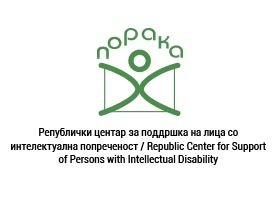On 11 February 2014, EDF presented its manifesto on the EU elections 2014 at the European Parliament. The event was organised in cooperation with the European Parliament Disability Intergroup and gathered a lot of MEPs; all of them expressed their full endorsement to the key priorities of EDF manifesto.
MEP Adam Kosa, who is also the President of the European Parliament Disability Intergroup, opened the event together with the Vice-President of the Intergroup, MEP Richard Howitt.
“In the next term of the European Commission we need a fully-fledged directorate on disability issues and we hope that we will achieve that. It is time to bring a real change to the lives of persons with disabilities”, said MEP Adam Kosa.
“We have not protected persons with disabilities during the crisis and this is a deep shame for our countries and for Europe. We are disappointed that the European Commission has not published the proposal for European Accessibility Act but it is not too late!”, said MEP Richard Howitt underlining that “the ratification of the Optional Protocol to the UN Convention on the Rights of Persons with Disabilities is also in our project for the next 5 years.”
EDF President, Yannis Vardakastanis, presented the manifesto expressing the expectations of the disability movement: “Progress had been made on legislative level but due to the crisis, the real situation of persons with disabilities has got worse. We need the loud support of the European Parliament and of all candidates MEPs during the election campaign to promote a drastic change of policy whereby public finances consolidation is not at the expense of fundamental rights and social cohesion in the EU and do not to create more exclusion for those who are already excluded. We want persons with disabilities to participate fully in the democratic process and be able to enjoy their right to vote.”
The President of the Socialists & Democrats Group, MEP Hannes Swoboda committed to push the European Commission about the European Accessibility Act: “I will propose to my colleagues, the other Presidents of the European Parliament’s political Groups, to write a letter to the European Commission to push for the proposal for a European Accessibility Act to be published now. This is my promise.”
MEP Jorgo Chatzimarkakis underlined the importance of the inclusion of 80 million Europeans with disabilities, who represent 16% of the EU population: “Persons with disabilities are an electorate that cannot be ignored.”
EDF MANIFESTO ON THE EU ELECTIONS 2014:
EDF calls on candidates MEPs and political parties to include the following priorities into their electoral programmes for the European elections 2014:
1. The promotion of a vision of an inclusive, sustainable and democratic Europe
2. The reform of Europe’s economic and social policies to ensure the protection and enjoyment of human rights of Europeans with disabilities
3. Making goods and services accessible for all through:
- the European Accessibility Act, a much-awaited EU legislation on the accessibility of goods and services in the EU internal market
- the proposed EU Directive on the accessibility of public websites, a crucial legislation, part of the EU Digital Agenda, currently in negotiation, which will make public websites accessible to persons with disabilities
- Accessibility of transport services and infrastructure
- Removing obstacles to free movement for persons with disabilities and their families
- Making EU funds barrier-free for persons with disabilities
4. The adoption of the proposed general non-discrimination directive, a much-anticipated EU law designed at protecting persons with disabilities (amongst other groups) from discrimination in all areas of life
5. The swift ratification by the EU and by all Member states of the Optional Protocol to the UN Convention on the Rights of Persons with Disabilities
The EU and some Member States, despite being party to the UN Convention, are still expected to ratify the Optional Protocol, which introduces important procedures to strengthen the implementation of the Convention
6. The establishment of mechanisms within EU institutions to mainstream the UN Convention on the Rights of Persons with Disabilities while ensuring the involvement of persons with disabilities



